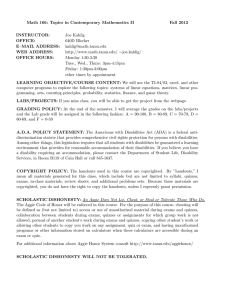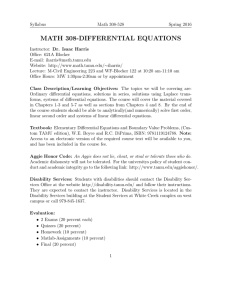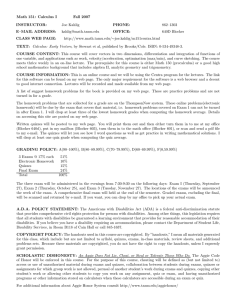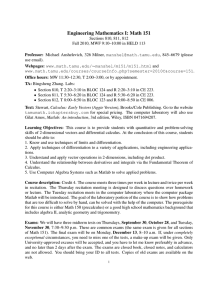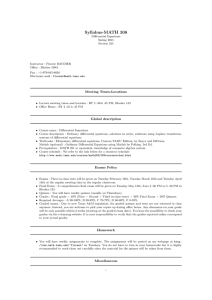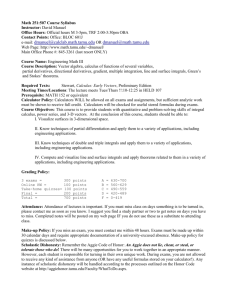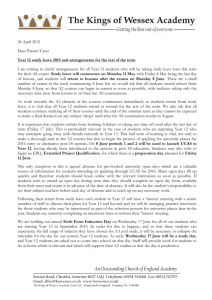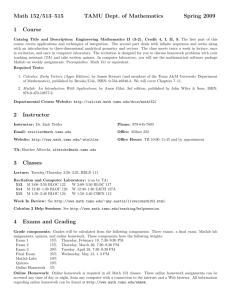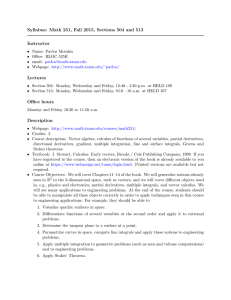Text: The Essentials of Probability by Richard Durrett Doug Hensley, Milner 311,
advertisement
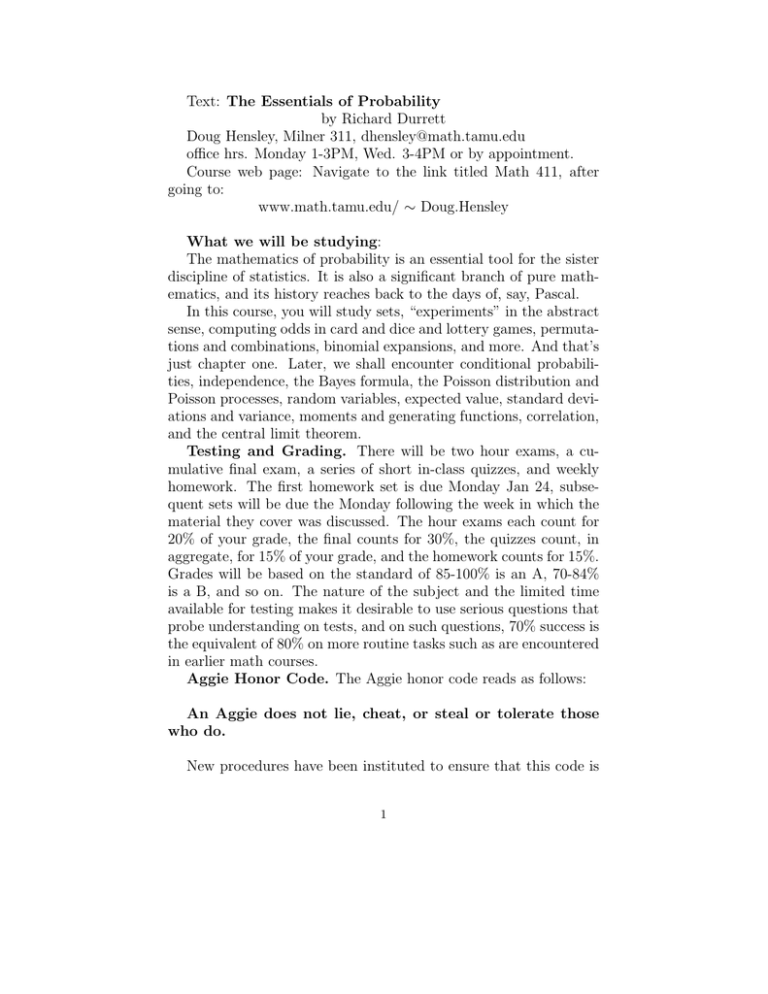
Text: The Essentials of Probability by Richard Durrett Doug Hensley, Milner 311, dhensley@math.tamu.edu office hrs. Monday 1-3PM, Wed. 3-4PM or by appointment. Course web page: Navigate to the link titled Math 411, after going to: www.math.tamu.edu/ ∼ Doug.Hensley What we will be studying: The mathematics of probability is an essential tool for the sister discipline of statistics. It is also a significant branch of pure mathematics, and its history reaches back to the days of, say, Pascal. In this course, you will study sets, “experiments” in the abstract sense, computing odds in card and dice and lottery games, permutations and combinations, binomial expansions, and more. And that’s just chapter one. Later, we shall encounter conditional probabilities, independence, the Bayes formula, the Poisson distribution and Poisson processes, random variables, expected value, standard deviations and variance, moments and generating functions, correlation, and the central limit theorem. Testing and Grading. There will be two hour exams, a cumulative final exam, a series of short in-class quizzes, and weekly homework. The first homework set is due Monday Jan 24, subsequent sets will be due the Monday following the week in which the material they cover was discussed. The hour exams each count for 20% of your grade, the final counts for 30%, the quizzes count, in aggregate, for 15% of your grade, and the homework counts for 15%. Grades will be based on the standard of 85-100% is an A, 70-84% is a B, and so on. The nature of the subject and the limited time available for testing makes it desirable to use serious questions that probe understanding on tests, and on such questions, 70% success is the equivalent of 80% on more routine tasks such as are encountered in earlier math courses. Aggie Honor Code. The Aggie honor code reads as follows: An Aggie does not lie, cheat, or steal or tolerate those who do. New procedures have been instituted to ensure that this code is 1 understood and adhered to. Be sure to look them up on the web, at www.tamu.edu/aggiehonor You may collaborate as a team of two on homework, provided both partners have thought about the questions and the homework is submitted as joint work. You may of course do the homework without a partner. You may not collaborate beyond this, nor may you copy answers from any outside source. Departmentally provided help sessions, office hours, etc. may provide hints toward solutions, solutions of related problems, or general advice, but you should not expect or accept full-blown solutions to assigned problems. In class, quizzes and exams are to be worked individually. Copyright All printed material disseminated in class or on the web is protected by copyright law. Multiple copies or sale of any of these materials is prohibited. Course Schedule Chapter one, weeks 1 to 3. Chapter 2, weeks 4 thru 6. Exam 1, Monday Feb 27. Chapter 3, weeks 7-9, straddling Spring Break. Chapter 4, weeks 10-12. Exam 2, Monday, April 17. Chapter 5, remaining time. Starred sections may be omitted if time runs short. Homework 1: p 6 # 1.6, p 11# 2.4, 2.6, 2.7, 2.10, 2.11, 2.14, 2.19. Homework 2: p 20 # 3.15, 3.17, 3.19, 3.21, 3.23, 3.26, 3.28, and p 24 # 4.4, 4.6, 4.8, 4.12, 4.15. Final Exam The two-hour final exam will be held according to University published schedules. For our MWF 10:20 class, cutting and pasting from the official final exam schedule gives May 9, Tuesday, 8:00-10:00 a.m. for classes meeting MWF 10:20-11:10 a.m. 2
